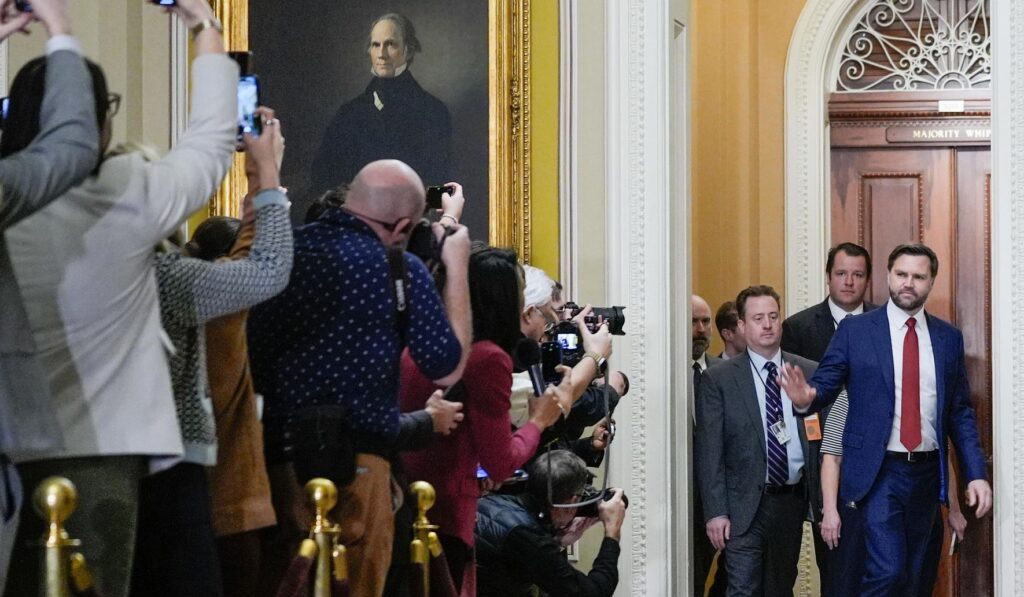Vice President J.D. Vance said Tuesday that the administration has found enough money to fund another paycheck for active duty military troops amid the ongoing government shutdown. This announcement shifts attention from Washington bickering to the immediate needs of service members and their families. The move has political weight and practical consequences that merit a clear look at how it happened and what it means going forward.
The immediate benefit is simple and significant: troops get paid. That matters not just for morale but for bills, housing, and readiness across the force. Republicans can point to prioritizing veterans and active duty personnel as the right moral and political choice in a shutdown scenario.
Officials say the money was located within existing accounts, reallocated to cover another payroll cycle for active duty personnel. That approach avoids emergency appropriations and keeps administrative chaos to a minimum. Still, reallocations are a one-off remedy and do not replace sustained funding from Congress.
From a Republican perspective, preserving paychecks while defending fiscal discipline is the pragmatic path. Lawmakers should be credited when they find ways to protect service members without giving in to unchecked spending. At the same time, the reality of a shutdown exposes the failures of both parties to settle appropriations on time.
There are legal and logistical wrinkles to consider as well: which accounts were tapped, how long those funds will cover payroll, and whether civilian Defense Department employees will be treated the same. Those questions matter to units deployed overseas and to support personnel stateside. Transparency on accounting will be essential to avoid surprises as the calendar moves forward.
Politically, the announcement recalibrates pressure on both chambers of Congress. Lawmakers who refuse to negotiate now face being portrayed as willing to make troops wait for pay. That framing helps Republicans who emphasize stewardship of national security while pushing for smarter budgeting. It also forces Democrats to explain their role in any continuing impasse.
Operationally, timely pay keeps force readiness intact and reduces personnel churn. When paychecks clear, service members can focus on missions rather than mortgage notices or childcare disruptions. For commanders and support staff, that stability is a force multiplier the Pentagon cannot afford to lose.
Critics will say this is political theater or a temporary fix that avoids deeper budget conversations. Those critiques deserve attention, but they should not obscure a straightforward fact: the government has an obligation to its troops. Finding a way to keep paychecks flowing while negotiating appropriations is a lower-risk, high-impact move.
Looking ahead, Congress must act to provide full-year funding and remove the recurring threat of shutdowns. Short-term fixes can and should be used to protect service members, but long-term solutions require serious budgeting discipline and clear priorities. The administration’s step to secure pay for active duty troops shows that protecting the military is possible even amid fiscal fights, but it cannot become the default plan for governing.



